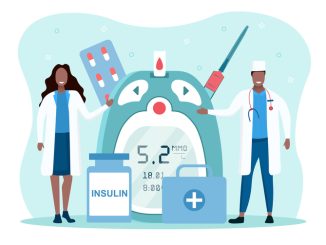
Figures show that the vaccine uptake amongst some ethnic minorities is significantly lower, but what are the reasons behind this?
CREDIT: This is an edited version of an article that originally appeared on The BMJ
While the risks from COVID-19 are now better-established, mitigation efforts remain insufficient, particularly among more marginalised groups. More recently, vaccine uptake data reveals a disturbing pattern that exposes continued racial inequalities. Health inequalities occur when populations are made vulnerable to diseases through inequitable distribution of support or protection, increasing the risk of illness and death. The lower COVID-19 vaccine take-up in some ethnic minority groups follows a historical trend, but this should not be normalised, or even exist today.
The latest data from the Office for National Statistics confirms that ethnic minorities in England are considerably less likely to receive a COVID-19 vaccine than their white counterparts. While 90.2% of those aged 70 years and over living in England had received at least one dose of vaccine by 11 March 2021, uptake rates were 58.8% and 68.7% in Black African and Black Caribbean groups, respectively. This was followed by Bangladeshi (72.7%) and Pakistani (74.0%) populations, with the most pronounced differences seen in those living in the most deprived areas of England.
Vaccine take-up also varied by religious affiliation, with Muslims (72.3%) and Buddhists (78.1%) having the lowest rates, despite Pfizer-BioNTech, AstraZeneca and Moderna confirming that their vaccines do not contain animal products, and despite endorsement of the vaccines by the British Islamic Medical Association, the Dalai Lama, the Hindu Council UK and the Board of Deputies of British Jews.
Despite the considerable obstacles, there is an opportunity to improve the historically low vaccine uptake rates in ethnic minority groups. With new data continuing to emerge on the relationship between the AstraZeneca/Oxford vaccine and a very rare risk of specific types of blood clots – such as cerebral venous sinus thrombosis, which is sometimes associated with low platelet counts – the Medicines and Healthcare products Regulatory Agency and the European Medicines Agency stated, once again, on 7 April 2021 that the benefits of COVID-19 vaccines considerably outweigh the possible risks.
Some anti-vaccination advocacy groups may try to take advantage of this association to further their own agenda, but clinicians and public health specialists need to reaffirm the safety of COVID-19 vaccination, and the high risk of serious illness, long-term complications, and death in people who are not vaccinated.
Challenges
Vaccine safety and effectiveness concerns are, however, not our only challenges; effective vaccine allocation strategies can alleviate other barriers, including vaccine-related access and convenience of appointments. Reaching communities, through culturally-sensitive communication, remains even more crucial in light of the Joint Committee on Vaccination and Immunisation resisting calls to prioritise ethnic minorities across the different phases of the vaccination programme, or through larger allocations of vaccines to areas with the highest rates of COVID-19.
Vaccine hesitancy in some ethnic minority groups, because of past institutional racism and poor experience of public services is not new, and there is evidence supporting their genuine concerns. When interpreting low vaccine uptake, especially in predominantly black communities, history profoundly matters. There are historical ethical violations including, for example, the Depo-Provera study, conducted in East London in 1979, where a 14-year-old black girl was administered the contraceptive, without consent, while under general anaesthesia.
Data demonstrating that black populations are least likely to receive a vaccine are especially concerning as it appears that anti-vaccine groups are exploiting their mistrust through effective messages. Furthermore, the ongoing, lived experiences of structural racism, which the UK government continues to deny – rather than acknowledging, and developing strategies to end this – continue to undermine the trust required to mobilise public behaviour for population health benefits.
The origins of vaccine hesitancy and vulnerability are rooted in everyday life, requiring intersectoral approaches and mitigation efforts from outside the health sector to transform the social determinants of health. The legacies and current practices of racial exclusion, disinvestment, discrimination and violence continue to enable health inequalities to provide conditions for COVID-19 to persist in ethnic minorities even when life-saving vaccines are available. A refusal to address the root causes of these ingrained societal inequalities may lead COVID-19 to become, like many other infectious diseases, a ‘disease of poverty’. The recent government report, denying the reality and consequences of structural racism – despite overwhelming evidence – will make it extremely difficult to establish trust and overcome justifiable anger and mistrust in some ethnic minority groups.
For public health interventions to be considered effective, and not only efficient, those at highest risk must be targeted, protected and supported, thereby ensuring that health outcomes are improved. Unless we mitigate the consequences of past and ongoing wrongs, and unless vulnerable populations feel seen, heard and advocated for, the low uptake rates seen across older people from ethnic minorities will become even more pronounced when the vaccination programme starts to target younger people, among whom vaccine hesitancy and distrust is highest.


Be the first to comment